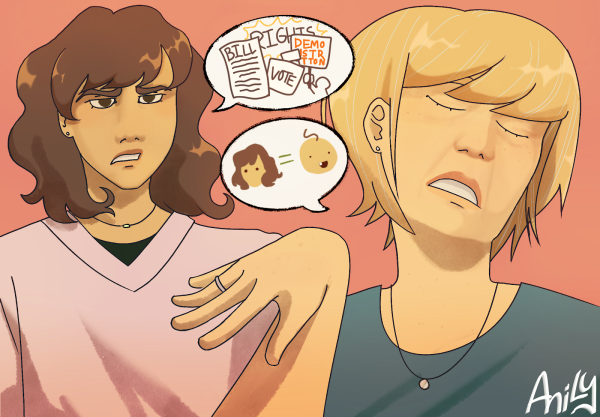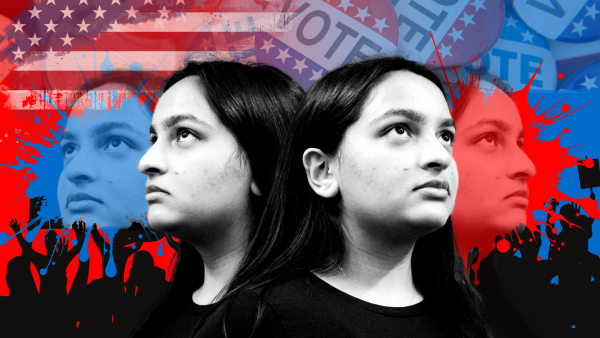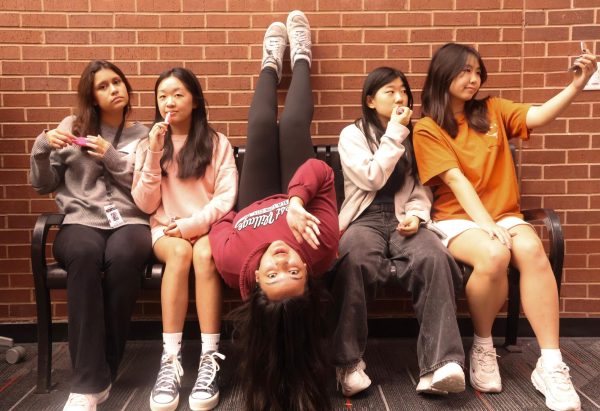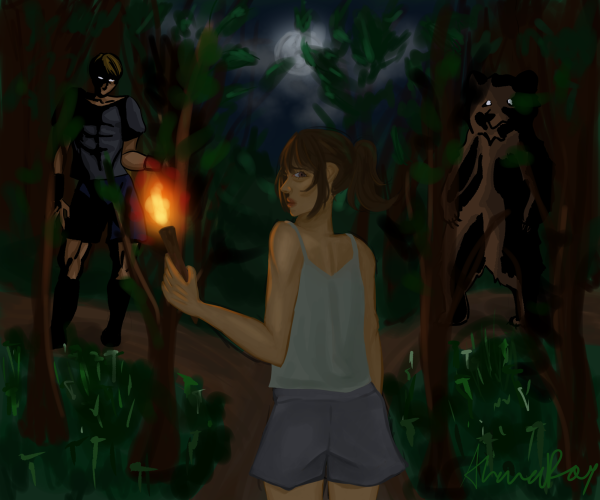The power of slouching
How body language defines your actions and how people see them

Alex Todorov from Princeton University has shown us that judgements of political candidates’ faces in just one second predicts seventy percent of U.S Senate outcomes.
When we think of nonverbal behavior, or “body language”, we think about communication, which is a form of interaction. We think of how we judge others, how they judge us and what the outcomes are.
“You’re body language shapes who you are,” social psychologist Amy Cuddy explained in her world-known TED Talk Fake it till you make it.
Cuddy explains how our posture can affect our testosterone and cortisol levels in the brain, changing our feelings about ourselves.
This means that standing tall and proud, even when we do not feel confident, can have a positive impact on how we are perceived and how we act.
Placing your hand on your face or neck is a low power pose that communicates a need of protection from other people. Another example of a low power pose is hiding your hands in your pockets; it hints that you lack self-confidence. Yet the Wonder Woman pose with both hands on hips, head held high shows that you are assertive and makes one appear bigger and stronger.
Psychologists Dana Carney and Amy Cuddy have been trying to determine if we can really fake it till we make it.
“We smile when we feel happy, but also, when we’re forced to smile by holding a pen in our teeth, it makes us feel happy,” said Cuddy in her TED Talk.
Powerful people are not surprisingly more assertive and more confident. They actually feel they’re going to win even at games of chance. They tend to be able to think more abstractly. They take more risks.
Our bodies change our minds, our minds can change our behavior and our behavior can change our outcomes. It feels fake, yet we really can fake it till we make it.
What do we do when we feel powerless? We close up. Both animals and humans do the same thing. What we tend to do when it comes to power is that we complement the other’s nonverbals. If someone appears to be more powerful than us, we tend to make ourselves smaller, acting as the complete opposite of them; essentially, we hide. This is a problem that athletes face when they are about to play against opposing, powerful teams.
“The coaches praise good posture,” Coppell High School JV junior football player Sebastian Escalante said. “It exudes confidence and shows your own team and the opposing team that you’re confident and you know what you’re doing.
“The coaches tell us to stand straight when we are running onto the field and show our confidence through posture. Even if we are scared, have a gut feeling we are about to lose we are told to remind ourselves that we own this and we are going to walk away from that field after the game as winners.”
Good posture creates a positive mental outlook for athletes when they are about to take on the field. This is demonstrated in the psychological confirmation bias: if you believe something will happen then the likelyhood of it happening increases.

Tara is a junior at Coppell High School, she is a current staff writer for The Sidekick and has dreams of becoming the editor of a major newspaper. She...







